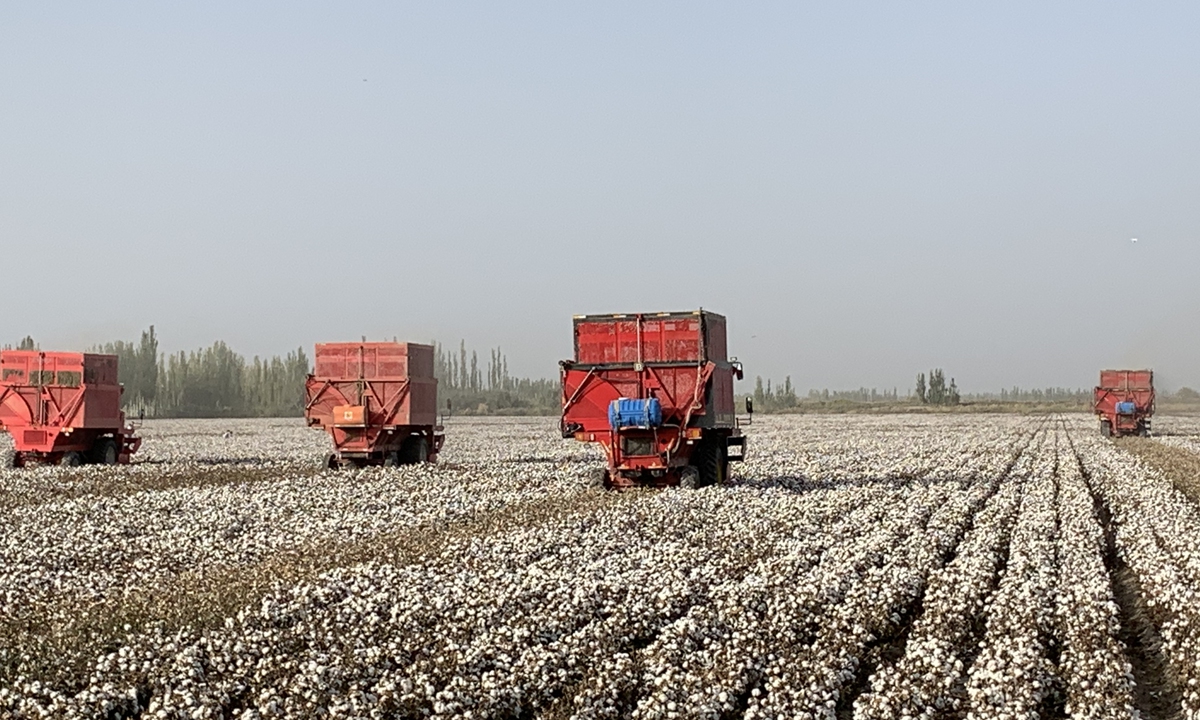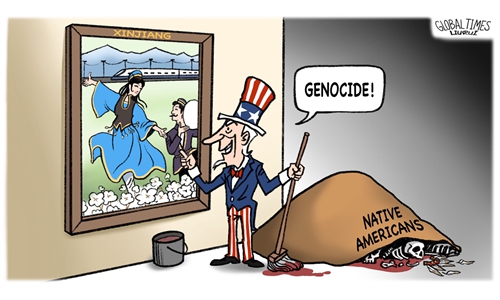
A view of a cotton farm in Xinjiang Photo: Li Xuanmin/GT
The US' cotton-related sanctions in Xinjiang, which drifted far from the truth but helped to torment China, have little impact on the cotton growers but only made American consumers pay the bill by increasing cost in the industry, scholars said at a seminar on Xinjiang's labor employment on Sunday.
At the online seminar hosted by the Jinan University and attended by over 50 teachers and students from a number of Chinese universities, Tan Chuanxu, a PhD candidate of the Human Rights Institute at the Southwest University of Political Science and Law, shared her report on the situation of young migrant workers of different ethnicities from Xinjiang.
The report suggests that migrants voluntarily moved out of the region to seek jobs, as more choices outside Xinjiang can significantly improve their economic conditions and quality of life, and have more development opportunities.
Xinjiang's employment policy plays an important role in poverty alleviation, Tan said, adding that the Chinese government's employment policy in the autonomous region is an important implementation of the requirements of the United Nations and is in line with international conventions.
Chen Ning, a research fellow from Jinan University said the reasons for people from Xinjiang to seek jobs elsewhere are mainly better environment, high-paying jobs, quality education resources and more opportunities.
Based on her observation of Xinjiang migrant workers, enterprises have fully guaranteed their interests, freedom of religion and language.
Speaking of alleged "forced labor" in Xinjiang's cotton industry, Shang Haiming, an assistant professor at the Human Rights Institute at Southwest University, said that mechanized cotton harvesting has already become mainstream in Xinjiang and the industry actually offers well-paid jobs compared to others.
He stressed that cotton pickers of all ethnic groups in Xinjiang enjoy a wide range of full labor rights and the accusations from the US and the West lack a factual basis.
"The US strategy of curbing China with Xinjiang-related issues focuses on an all-round intervention by questioning legitimacy to undermine China's governance, economy and sovereignty," Li Jie, professor of the Institute of Central Asian Studies at Lanzhou University, said during the event.
"Such strategy is an important part of the US containment of China and the Western discourse on Xinjiang has detached from the reality of the region's development and stability but serves as a tool to insert values," Li said.
The US cotton-related sanctions have actually increased the cost in the industry, making US importers and consumers the main "bill payers," experts said.


